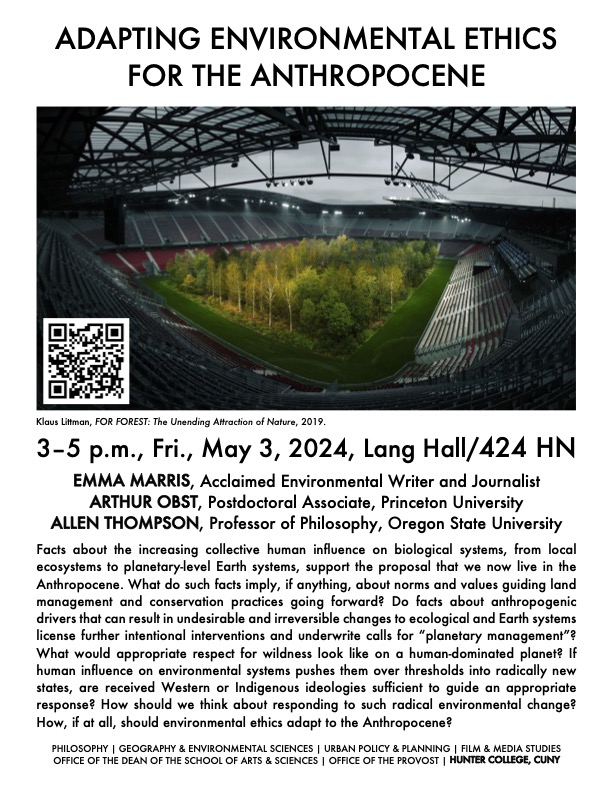With responses from Mark Siderits (Illinois State University)
ABSTRACT: Buddhist philosophers often draw a distinction between two different kinds of truth: conventional truth (saṃvṭi-satya) and ultimate truth (paramārtha-satya). Abhidharma Buddhists philosophers typically understand this distinction in terms of an ontological distinction between two different kinds of entities: ultimately real entities (paramārtha-sat) and conventionally real entities (saṃvṛti-sat). Similar to contemporary philosophical discussions about ordinary objects, Buddhist philosophers debate the ontological status of conventional entities and the semantics of discourse concerning them. Mark Siderits (2015, 2021, 2022) has influentially argued for an eliminitivist position he calls “Buddhist reductionism” that interprets the Abhidharma position as one that denies conventional entities exist but that retains discourse involving apparent reference to them. However, in a recent article Kris McDaniel (2019), a prominent defender of ontological pluralism, challenges that view by proposing that the Abhidharma Buddhist distinction between conventional truth and ultimate truth be “defined up” from a more basic distinction between two different ways an entity can exist: conventionally or ultimately. In this paper I argue that Saṃghabhadra’s account of conventional reality and truth does lends itself well to McDaniel’s proposal but I will also argue that the account of conventional and ultimate truth that results differs in important ways from the models he offers. I will end by offering a modification of McDaniel’s account of conventional truth that is derived from Saṃghabhadra’s pluralist ontology. That view will, unlike the views suggested by both Siderits and McDaniel, allow for there to be ultimate truths about what is conventionally true.
Dinner will be kindly offered by the Columbia University Seminars.
RSVP is required for dinner. Please email Lucilla with eating requirements at lm3335@columbia.edu.
The speaker will be Prof. Lewis Gordon of the University of Connecticut, on “From Harlem to the World: Philosophy from a Center of the Black World with Questions for the 21st Century.” Gordon will talk about worldliness and public aspects of philosophy, placing them in the context of Harlem both at City College and the public world of Africana philosophy from Du Bois to Malcolm X to contemporaries such as Nathalie Etoke. He will conclude with a set of questions for 21st century philosophy to consider.
Lewis R. Gordon is Professor and Head of the Department of Philosophy at UCONN-Storrs; Honorary President of the Global Center for Advanced Studies; Honorary Professor in the Unit for the Humanities at Rhodes University, South Africa; and Distinguished Scholar at The Most Honourable PJ Patterson Centre for Africa-Caribbean Advocacy at The University of the West Indies, Mona. He co-edits the journal Philosophy and Global Affairs, the Rowman & Littlefield book series Global Critical Caribbean Thought, and the Routledge-India book series Academics, Politics and Society in the Post-Covid World. He is the author of many books, including, most recently, Freedom, Justice, and Decolonization (Routledge, 2021) and Fear of Black Consciousness (hardcover, NY: Farrar, Straus and Giroux, 2022; in the UK, London: Penguin Books, 2022), Picador paperback 2023. He is the 2022 recipient of the Eminent Scholar Award from the Global Development Studies division of the International Studies Association.
Facts about the increasing collective human influence on biological systems, from local ecosystems to planetary-level Earth systems, support the proposal that we now live in the Anthropocene. What do such facts imply, if anything, about norms and values guiding land management and conservation practices going forward? Do facts about anthropogenic drivers that can result in undesirable and irreversible changes to ecological and Earth systems license further intentional interventions and underwrite calls for “planetary management”? What would appropriate respect for wildness look like on a human-dominated planet? If human influence on environmental systems pushes them over thresholds into radically new states, are received Western or Indigenous ideologies sufficient to guide an appropriate response? How should we think about responding to such radical environmental change? How, if at all, should environmental ethics adapt to the Anthropocene?

The Saul Kripke Center is pleased to announce that James Walsh (Assistant Professor, Philosophy, NYU) will deliver a talk on Friday, May 10th, 2024, from 4:15 to 6:15 pm at the CUNY Graduate Center (Room 9207). The talk is free and open to all.
Title: Modal definability and Kripke’s theory of truth
Abstract: In Outline of a Theory of Truth, Kripke introduces some of the central concepts of the logical study of truth and paradox. He informally defines some of these–such as groundedness and paradoxicality–using modal locutions. We introduce a modal language for regimenting Kripke’s informal definitions and characterize the modally definable sets. Though groundedness and paradoxicality are expressible in the modal language, we prove that intrinsicality–which Kripke emphasizes but does not define modally–is not.